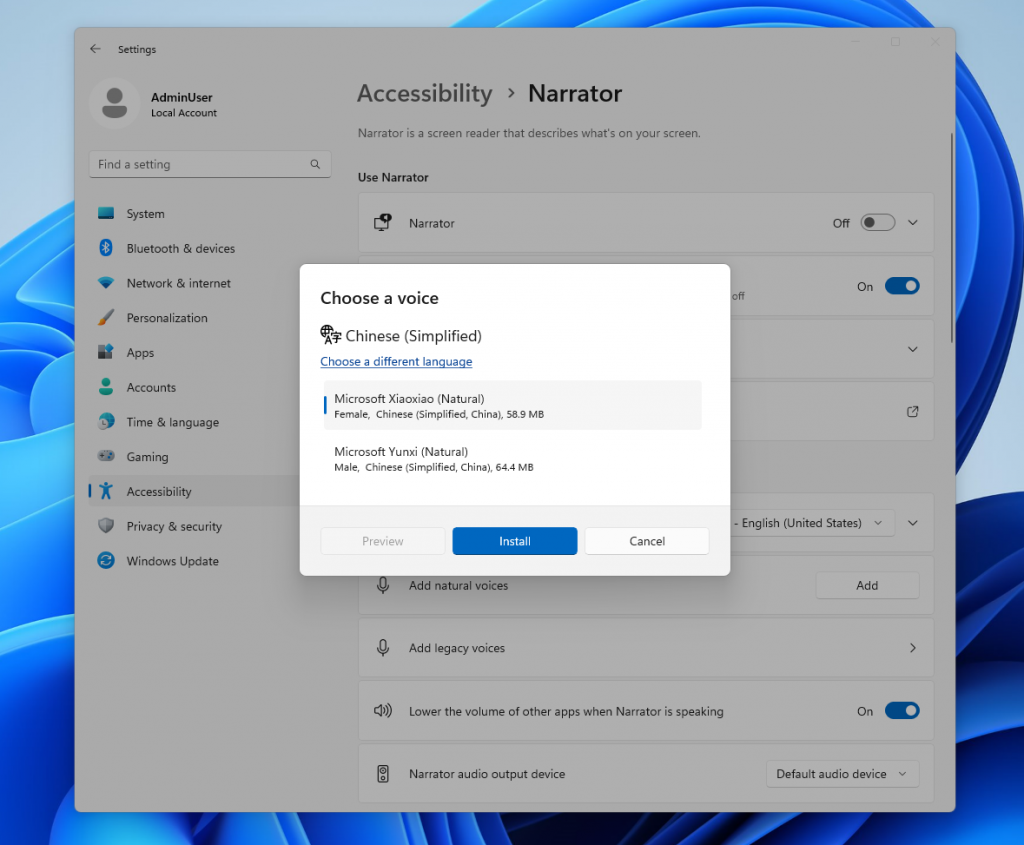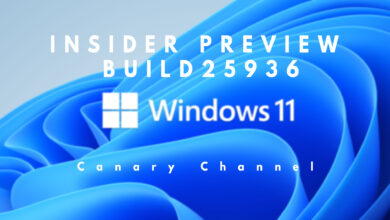Windows Introduces Traditional Chinese Support for Narrator in Latest Insider Build 22621.2115

Two years have passed since Windows 11‘s release, and after a rocky beginning, it has matured into a stable version with lots of new support and features. Since Windows 11 was an abrupt change from its predecessor, Windows 10, it was plagued by performance and compatibility issues that necessitated gradual improvements. Microsoft, however, has not slowed down in the least, fixing bugs as soon as they were reported and adding new features simultaneously.
Windows Insider Preview Build 22621.2115 and 22631.2115 were released today for Beta users, showcasing numerous updated features and bug fixes. This build’s primary focus is fixing some backend bugs that may have been affecting computer performance. For your convenience, a summary of the modifications has been provided.
Narrator Improvement
Particularly useful for the visually impaired, Windows Narrator describes what each button does and what actions can be taken. However, the Narrator was useless to traditional Chinese speakers because it lacked support for their writing system. Windows now has support for Traditional Chinese in its Narrator, so it’s much simpler for users to use this function.
General Fixes
As was previously stated, this update includes numerous bug fixes. Here’s a quick rundown of some of them. After the update, the handwriting Software Input Panel (SIP) can handle level-3 input. In addition, Microsoft has expanded its list of drivers vulnerable to Bring Your Own Vulnerable Driver (BYOVD) attacks in an effort to improve security.
Additionally, further security measures were taken by improving Windows Defender and ensuring no unsigned WDAC policies are added Extensible Firmware Interface (EFI) disk partition, which is meant for signed policies only. Further improvements were made for drivers, print jobs, and many more. You can have a look at them here.
Known Issues Fixed
A common issue regarding File Explorer crashing has been solved in the latest build, including another problem of the context menu going transparent. Alongside this, an issue with desktop icons disappearing has been fixed, and Windows has directed users to use the refresh button to get rid of this problem.
Apart from the File Explorer, a few bugs in the taskbar have been addressed. Including a problem with the “Safely Remove Hardware” Icon not appearing on the taskbar and the addition of a few settings that will be enabled in future builds
Fixes
- New! This update affects the Handwriting Software Input Panel (SIP), the Handwriting Engine, and the Handwriting Embedded Inking Control. They now support GB18030-2022 conformance level 2. Because of this, they meet the level 3 requirements.
- This update affects text edit controls in XAML. You cannot edit the controls again after they become read only. This occurs when you use the new Microsoft Input Method Editor for Japanese, Chinese, and Korean.
- This update affects the Windows Kernel Vulnerable Driver Blocklist, DriverSiPolicy.p7b. It adds drivers that are at risk for Bring Your Own Vulnerable Driver (BYOVD) attacks.
- This update addresses an issue that affects certain CPUs. There is inconsistent reporting of the L2 cache.
- This update addresses an issue that affects certain wireless wide area network (WWAN) devices. After every restart, a dialog reappears. It asks you to switch to embedded SIM (eSIM) even when you choose “No.”
- This update affects user mode printer drivers. They unload unexpectedly. This occurs when you print from multiple print queues to the same printer driver.
- This update addresses an issue that affects hybrid joined devices. You cannot sign in to them if they are not connected to the internet. This occurs when you use a Windows Hello for Business PIN or biometric credentials. This issue applies to a cloud trust deployment.
- This update addresses an issue that affects Windows Defender Application Control (WDAC). The issue copies unsigned WDAC policies to the Extensible Firmware Interface (EFI) disk partition. This partition is reserved for signed policies.
- This update addresses an issue that affects The “Disabled: Script Enforcement” option might create audit events you do not need.
- This update addresses an issue that affects a printing job. An unexpected Internet Printing Protocol (IPP) mode switch can cause the print job to abruptly stop. This occurs when there is an independent hardware vendor (IHV) driver.
- This update addresses an issue that affects certain display and audio devices. They are missing after your system resumes from sleep.
- This update enhances hinting for some of the letters of the Verdana Pro font family.
- This update addresses an issue that affects the MPSSV service. The issues causes your system to restart repeatedly. The stop error code is 0xEF.
- This update makes brightness settings more accurate.
- This update affects Windows Autopilot profiles. The process to download the Windows Autopilot policy is more resilient. This helps when a network connection might not be fully initialized. This update increases the retry attempts when you try to download the Windows Autopilot profile.
- This update addresses an issue that affects I/O over Server Message Block (SMB). It might fail when you use the LZ77+Huffman compression algorithm.
- This update makes Narrator announce the “Change product key” label.
- This update affects the Windows Push Notification Services (WNS). It makes the connection between the client and the WNS server more reliable.
- This update addresses an issue that affects the Windows Management Instrumentation (WMI) repository. This causes an installation error. The issue occurs when a device does not shut down properly.
- This update addresses an issue in the Windows Notification Platform. The issue affects how much power your device uses.
- This update addresses an issue that affects the Defender Firewall Profile. It fails to automatically switch from a LAN that is trusted to a public network.
- This update addresses an issue that affects Widgets. They unpin from the taskbar when you do not expect it.
- This update addresses an issue that affects virtual private networks (VPN). There might be excessive Address Resolution Protocol (ARP) requests to the network gateway. This occurs when the VPN is on a wireless mesh network. Because of this, network performance is poor.
- This update addresses a deadlock in Internet Protocol Security (IPsec). When you configure servers with IPsec rules, they stop responding. This issue affects virtual and physical servers.
- This update addresses an issue that affects Event Forwarding Subscriptions. When you add an Event Channel to the subscription, it forwards events you do not need.
- This update makes Country and Operator Settings Asset (COSA) profiles up to date.
- This update addresses an issue that affects the fastfat file system driver. It stops responding because of a race condition.
While this update was not a major one, many minor and backend bugs were fixed that will make our experience smoother. We will let you know if any further update is released and how it will benefit daily usage for all users.





